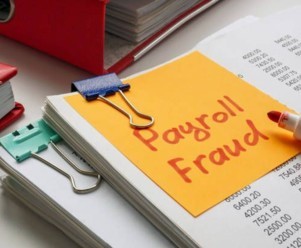State To State Pay Stub Requirements
By Jaden Miller , June 15 2020

Do you have to give paystubs to employees? That’s a fair question to ask, considering that most employees get their checks through direct deposit. The law can be confusing at times because there are federal laws and regulations and then there are state laws. There are also laws about keeping and maintaining records that can make it even more confusing.
Read on to learn what the pay stub requirements are by state and how you can make sure you comply with them.
Do You Really Need Pay Stubs?
The law around paystubs is really murky at best. Federal law has nothing stating that employers are required to provide pay stubs to their employees and independent contractors. They are required to provide end of year forms like a W-2 form and a 1099-MISC if employees and contractors are paid more than $600 during the year.
Otherwise, employers aren't required to provide regular pay stubs. There are states, on the other hand, that have their own laws and regulations. This varies by state. No matter what the law says about providing pay stubs to your employees, it’s good practice to do so. Your employees are happier because they can check to see how much is being withheld for taxes and deposited into their retirement plans.
They can also prove their income without a hassle, making it easier to get a loan or rent an apartment.
State Pay Stub Requirements
Since federal laws don't provide guidance as to whether or not you have to provide pay stubs, what do the states have to say? Well, it depends. State laws generally fall into three different categories: they have no paystub requirements, require access to paystubs, or require printed versions of the paystub.
States That Have To Provide Access To Pay Stubs
Employers in these states must provide access to paystubs. That access can be through electronic means or on paper.
- Alaska
- Arizona
- Idaho
- Illinois
- Indiana
- Kansas
- Kentucky
- Maryland
- Michigan
- Missouri
- Montana
- Nebraska
- Nevada
- New Hampshire
- New Jersey
- New York
- North Dakota
- Oklahoma
- Pennsylvania
- Rhode Island
- South Carolina
- Utah
- Virginia
- West Virginia
- Wisconsin
- Wyoming
Some states have what’s called an opt-out option. If an employer decides to provide electronic pay stubs, they have to allow employees to opt-out and still receive paper paystubs. Delaware, Oregon, and Minnesota fall under this category. As an employer, it makes more sense to provide electronic versions of paystubs and give your employees the option to print.
This can be a great option if you want to adopt environmentally friendly policies in your office because you can create paperless pay stubs and cut down on waste.
States With No Pay Stub Requirements
Below are the states that have no requirements to provide a paystub. Businesses that operate here can choose whether or not they want to provide pay stubs to their employees.
- Alabama
- Arkansas
- Florida
- Georgia
- Louisiana
- Mississippi
- Ohio
- South Dakota
- Tennessee
If you're in one of these states, you do have the choice to provide pay stubs or not. You want to make sure that you have a clear policy and accurate payroll records that employees can access if they have any questions. That will keep you within the laws to maintain accurate payroll records.
Written Access To Pay Stubs
There are some states that fall under the requirement to provide written pay stubs to employees. These are among the most strict requirements you’ll find. The states are as follows:
- California
- Colorado
- Connecticut
- Iowa
- Maine
- Massachusetts
- New Mexico
- North Carolina
- Texas
- Vermont
- Washington
Hawaii is interesting because the state requires employers to provide printed pay stubs to employees. If an employee prefers to get their paystub electronically, they need to provide a written request to the employer. Likewise, if a company switches to an electronic system, they have to get permission from employees to provide electronic paystubs.
Pay Stubs And Recordkeeping
To add more confusion to the fire, there are regulations around record keeping. The tax and labor authorities at the state and federal level have a stake in how you run your business and pay your employees. It’s up to you to be able to prove that you maintain good records in your business. There are several agencies that require you to maintain payroll records.
The Department of Labor, IRS, and your state labor and tax organizations all require accurate payroll records. You have to be able to prove that you paid the appropriate amount of payroll taxes if you're ever audited. You also have to show that you paid your employees the correct amount. Employees have the right to file a complaint against your company if they think that you didn't pay them the right amount.
Since there are so many rules and regulations to comply with, there are some general guidelines to follow. You should generally hold on to payroll records for four years. This is according to IRS guidelines. The Department of Labor allows employees up to two years to file a claim for unpaid wages and the department suggests keeping those records for three years.
What do you need to keep? Pretty much everything that's on a pay stub. This includes the employee's name, address, and social security number and the business name, address, and employee identification number. Other important information includes the pay rate, hours worked and taxes withheld for federal and state taxes.
Understanding The Pay Stub Requirements
You have a lot of responsibility as a business owner and employer. You need to make sure that you comply with the various rules and regulations that govern your industry and operations. One of the important things to know is the pay stub requirements in your state. Generally speaking, it's good to err on the side of caution and provide pay stubs to your employees and maintain payroll records.
Start creating paystub for your employees today effortlessly with our paystub maker!
Similar Articles
We’ve helped numerous individuals and businesses create professional documents! Create yours today!










